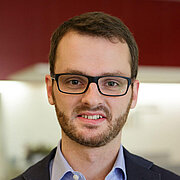Academic wisdom states that there is no single pathway to radicalisation and terrorism. How could any single framework account for the seemingly infinite variation of psychological features, political grievances, personal motives, social settings, historical conditions and life circumstances implicated in the trajectories of terrorists? Put like that, working towards a general model seems to be a futile endeavour. The alternative, however, is problematic: terrorist profiles are notoriously elusive and there is currently no stable set of risk factors associated with radicalisation and terrorist involvement. In fact, evidence suggests indicators are context-specific and multifinal, challenging practitioners tasked with risk assessment. Using evidence from a 3-year EU-funded study of lone terrorism actors, Noémie Bouhana will speak about her work developing a general, cross-ideology model of radicalisation, suggesting a way forward for individual terrorism risk analysis.
This is the second instalment of the new lecture series 'Frontline research on terrorism' at the Hertie School. The threat of terrorism is widely seen as one of the most pressing issues of our times. Yet the debate continues to be dominated by rumours, subjective opinions and emotions, rather than scientifically established facts. To strengthen the basis for political decision making, the event series aims to provide a realistic view of current and future scenarios based on the scientific findings of experts who study terrorism.

Noémie Bouhana is Associate Professor in Security and Crime Science at University College London, where she leads the Counter-Terrorism Research Group. She is both a political scientist and a criminologist by training, and her research interests centre on the systemic and ecological processes involved in the emergence of radicalising settings, the role that these settings play in the individual development of a terrorist propensity, as well as the mechanisms which underpin individual vulnerability to moral change. Most recently, she directed an international consortium of six European universities researching the prevention, interdiction and mitigation of lone actor radicalisation and attack behaviour. She is regularly called to brief UK and international public bodies.

Chair:
Julian Wucherpfennig is Assistant Professor of International Affairs and Security at the Hertie School. His research focuses on the strategic nature of political violence and conflict processes, especially ethnic civil war and terrorism.

